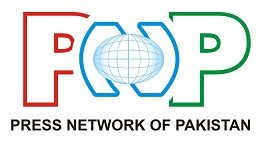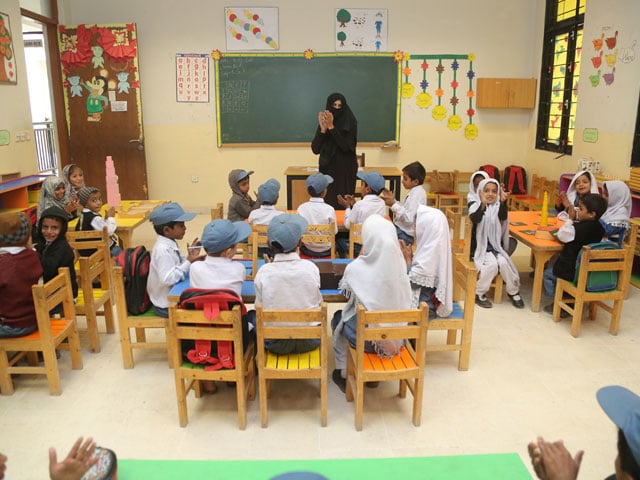Karachi: Sindh government’s law of giving free education to 10% students for private schools is not being fully implemented, on the other hand, private schools are calling this law controversial.
An interesting situation with surprising facts has emerged on the issue of compulsory law of giving “freeship” to 10% of the total enrolled students by the private schools established in the entire province including Karachi.
The Sindh government reminded the law of 2013 to give 10% freeship to private schools, while the private schools have declared the government law of 2004 to increase the fees by only 5% as old and outdated.
The debate started when the caretaker government took charge of private schools to implement the 2013 law.
It should be noted that a total of 11,736 private schools are active in Sindh for teaching from pre-primary to high school, of which about 7,000 are registered in Karachi.
According to the latest official data, the total enrollment of more than 11,000 registered private schools is 3,941,938 and under the 2013 law of giving freeship to 10% students, 394,000 students were also enrolled in these schools across Sindh. I should get free education.
But the data received so far by the government on the issue of freeship shows that only in Karachi, more than 10,000 students are getting free education in private schools that charge heavy or reasonable fees, while 9,000 students are getting scholarships or discounted fees in these schools. About students are being taught.
However, these figures are for the nearly 250 private schools in Karachi, whose enrollment is a little over 121,000.
On the other hand, the education officers claim that there are private schools run by some NGOs in addition to which a large number of freeships are being given. There is scope for further increase in this number.
It should be remembered that a few days ago, the Caretaker Chief Minister of Sindh had asked for a report from the School Education Department regarding how many percent of schools in Sindh are following the provincial government’s law of giving 10% free shipping.
After this order, the Department of School Education Sindh came into action and the Directorate of Private Institutions Sindh began to request data from private schools in this regard, which is still ongoing.
However, in this case, a new debate started with the data provided by the private schools to the Sindh government.
Notably, the “Free and Compulsory Education” Act was passed by the Sindh Assembly in February 2013 with the aim of making education free for students between the ages of 5 and 16.
A provision of this act mandated private schools to provide 10% of their total enrollment as full freeships to students. It has suddenly taken notice of this matter, however, private schools term this notice as one-sided and contrary to ground realities.
He says that Sindh has a law in the form of the Private Institutions Registration Act of 2004 that has tied the hands of private schools, which obliges private schools to increase their fees by 5 percent per annum. Can’t add more.
In contrast, in Punjab, private school fees are increased by up to 8% per annum under the law, which gives schools more room on economic grounds. However, with this limited capacity in Sindh, private schools are required to give 10% freeship.
Haider Ali, chairman of All Private Schools and Colleges Association Sindh, talking to “Express” about this situation, said that inflation has increased up to 40% in the whole country, but the increase in fees is allowed only up to 5%. But it is being said that follow the law of 10% freeship, this is an incomprehensible law.
He said that around 12 thousand private schools are educating about 40 lakh students in the whole of Sindh while on the other hand 45 lakh students are studying in 40 thousand government schools.
He claimed that out of 12 thousand there are only 1000 private schools whose fee is more than 5000, all the other schools are teaching by charging up to 4000 rupees, 90% of private schools have all the basic facilities. .
He asked the government that apart from private schools, which sector is giving freeship in their respective institutions, private schools are giving various discounts in addition to freeship despite all kinds of government taxes being levied on them. are going to. He said that an attempt is being made to wall the private schools by bringing them to the closed street.
Besides, the data received by “Express” from the government of Sindh shows that the data being received from private schools in this regard is very complex as well as interesting.
Some of the private schools located in Karachi’s posh areas of Defense, Clifton and PECHS are not giving even 1% freeship, but some of these schools are providing up to 8% freeship, most of them from Cambridge Board. are affiliated. On the other hand, freeship is being given in some campuses of well-known chain of schools and only scholarship is being offered in some.
It should be noted that according to the official data, the enrollment in A and O level in Cambridge is a little more than 55 thousand at the level of Sindh.
In addition to this situation, “Express” contacted Secretary School Education Shireen Nareju, and she said that if the complaint of private schools is valid, then the law can be amended, but for that a study must be done first. So it can be done, but the amendment can be done only through the Assembly, which is not present at the moment.
To a question, Secretary Education said that it has to be seen what is the law regarding fee increase and freeship in other provinces.
On the other hand, one of the creators of this law made in 2013 and an educationist, Dr. Muhammad Memon, said in this regard that some complaints of private schools are legitimate.
He said that when this act was being made, it was said that why we are putting so much weight on private schools, even then his objection is somewhat correct.
Along with inflation, the contingency cost of schools has also increased. The government should also rationalize the 2004 law.
Dr. Memon also said with reference to some private schools charging huge fees that their baseline fees are so high that even if they increase by 5% annually, it becomes a huge burden on the parents, so in the rationalization of this law, the categories Must work on the basis of
(function(d, s, id){
var js, fjs = d.getElementsByTagName(s)[0];
if (d.getElementById(id)) {return;}
js = d.createElement(s); js.id = id;
js.src = “//connect.facebook.net/en_US/sdk.js#xfbml=1&version=v2.3&appId=770767426360150”;
fjs.parentNode.insertBefore(js, fjs);
}(document, ‘script’, ‘facebook-jssdk’));
(function(d, s, id) {
var js, fjs = d.getElementsByTagName(s)[0];
if (d.getElementById(id)) return;
js = d.createElement(s); js.id = id;
js.src = “//connect.facebook.net/en_GB/sdk.js#xfbml=1&version=v2.7”;
fjs.parentNode.insertBefore(js, fjs);
}(document, ‘script’, ‘facebook-jssdk’));


